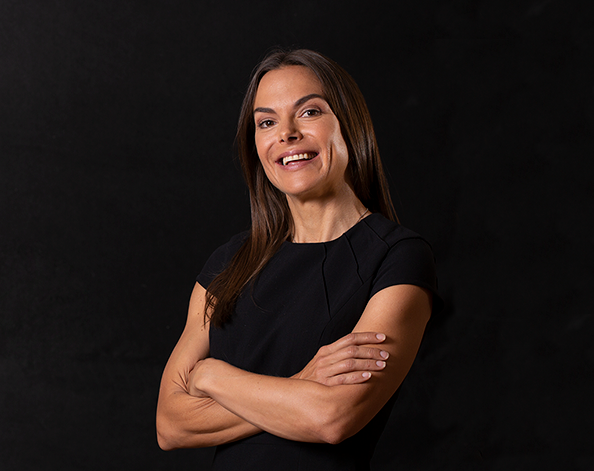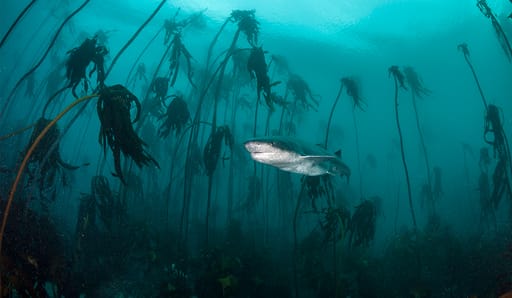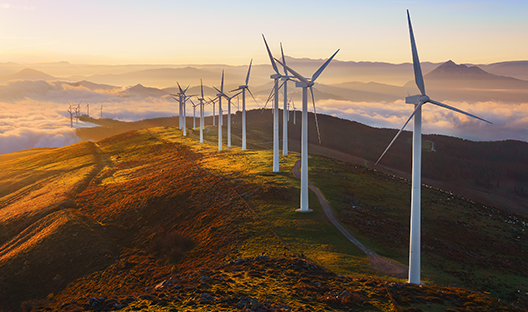Get Focus insights straight to your inbox
From a very young age, my mother instilled in me a travel bug. She had grown up, lived and worked in many countries and, being a global citizen, she would take me diving in the Red Sea and the Maldives, and skiing in the Swiss Alps and in the high peaks of the Colorado Rockies. One of my earliest memories is gazing at awe-inspiring tropical fish while snorkeling and my mother, who ran her own design business, telling me that God must be the greatest graphic design artist in the world to have been able to paint in such imaginative and majestic colours.
Later, my initial career in investment banking in New York, and then in wealth management, would be interspersed with forays deep into the high mountains where I would go to feed my soul. My husband and I traveled to the high glaciers of the Himalayas, Karakorum and the Hindu Kush. Particularly exhilarating memories are the early morning glacial melt river crossings in the high altitude mountain kingdoms of Ladakh – one of the last remaining Tibetan cultures, but hanging by a tenuous thread.
We walked the Inca Trail and gazed from the rooftops of Cusco at the ice-capped peaks of the Urubamba Mountain Range. We ventured deep into the Amazonian jungle, swimming with pink river dolphins and exploring green backwaters. Once we returned to the Cape, we trekked many of the high mountain trails, hiked and swam the Witels River each year, and revelled in the magical fynbos of the Cape Floral Kingdom.
And all the while witnessing and living within the hydrological cycle. The continuous, circular movement of water as it flows from the glaciated and snowcapped mountains, and the rain-soaked catchment basins, to the sea. Condensation, precipitation, infiltration, runoff and evapotranspiration (the sum of evaporation from the surface of the land plus transpiration from plants).
A little under three years ago, I joined my seven-year old daughter for a surf lesson and was immediately hooked. As I progressed, I found I longed for the solace of the ocean more and more. It was the place where I could spend an hour of complete focus. No disturbances, no emails, no phone calls, no WhatsApp – just complete immersion and absorption. Weightless in a saline solution. Just me and the waves.
A state of flow
Little did I know at that point that there had already been much scientific study on the ability of surfing to generate a state of Flow – and that globally more and more people, including high-powered executives, have been seeking out flow states that enable them to work at much higher levels of peak performance. In the 1970s, psychologist Mihaly Csikszentmihalyi led an extensive research project into how and why some people performed at a higher level, and at the same time, felt happier than other people while doing exactly the same task. He surmised that the answer was by achieving a certain state of consciousness.
The foundation for flow is an intense, focused awareness on the present moment, the type of focus more commonly associated with meditation. It is the focus one's consciousness slips into when engaged in a complex activity like surfing. Flow states can be defined by certain shifts in awareness. In his seminal work, Flow: The Psychology of Optimal Experience, Csikszentmihalyi outlines that people are happiest when in a state of flow. One is so involved and engaged in an activity that nothing else seems to matter and all temporal concerns (time, food, ego) are ignored. He further states that the Flow state is the optimal state of intrinsic motivation, where the person is fully immersed in what they are doing.

I found I longed for the solace of the ocean more and more. It was the place where I could spend an hour of complete focus. No disturbances, no emails, no phone calls, no WhatsApp – just complete immersion and absorption. Weightless in a saline solution. Just me and the waves.
When I am surfing in the ocean, I lose my state of self- consciousness. The same part of the brain that controls time also creates the self or the ego. Therefore when we are in a state of flow, there is no ego and therefore no self-consciousness. This allows for total absorption and the merging of action and your awareness. You become one with what you are doing. When your ego and all other thoughts are put aside, one enters the “zone”.
In a state of flow after surfing my mind is clearer and I am happier for longer than after my other traditional sports and hobbies. Work, numbers, writing, thought trajectories and thinking flow far more quickly and fluidly.
Surfing is a well-documented flow trigger. Almost 20 years ago Carly Rogers, an occupational therapist at the University of Southern California, started working with abused children by getting them into the sea to surf. The results were impressive and some sufferers experienced almost immediate relief. In 2007 her ocean therapy model was expanded to deal with Iraqi war veterans suffering from post-traumatic stress disorder and the outcome was so successful that it is now an ongoing programme. Similarly, positive results have been achieved with children with autism and the flow state achieved by surfing is now being widely used in the field of occupational therapy.
The ocean, the common denominator
The common denominator that makes it all possible and hold this incredible experience and space, is the magnificent ocean. The ocean can be likened to a giant container that holds all of life within it, and from where all life originated. In recent years, scientists have started to believe that the first cells originated in hydrothermal vents deep on the ocean floor. These were the first living cells that could grow, divide and evolve, and thus formed the basic building blocks of present-day life as we know it. We came from the sea and we shall return to the sea.
Ultimately every travel experience that I experienced in my life, from glacial streams to the mighty rivers of the Amazon Basin, involved bodies of water that eventually flowed to the sea. The cycle of water is the cycle of life and all things are interconnected. To me the sea feels like home.
I have always marveled that I am lucky enough to live within the Cape Floral Region. This has been recognised as one of the most special places for plants in the world in terms of diversity, density and number of endemic species. Although it is the smallest of the world's floral kingdoms, it is the richest by far, with 9,087 different plant species, of which 6,218 are endemic (found nowhere else in the world). By comparison, the British Isles have only 20 endemic plant species.
The Cape Floral Region may be the smallest of the world's floral kingdoms, but it is the richest by far, with 9,087 different plant species, of which 6,218 are endemic (found nowhere else in the world).
What is the link to the Ocean? The highly recommended book Sea Change (by Craig Foster and Ross Frylinck), which features the octopus from the award-winning documentary My Octopus Teacher, states a little known fact. It deduces that the diversity of the fynbos in the Cape extends from the land into the sea and the old kelp forests around the peninsula. It is only logical that the biodiversity which is so easily visible above the high water mark must be mirrored beneath its surface. The ocean is the last frontier of exploration and discovery on our planet. The biodiversity and abundance of life beneath the sea is as yet unquantified and there are undiscovered life forms awaiting detection. Let us hope that we do not destroy them before we even know of their existence.
It is thus imperative that we protect our oceans.
There is a torrent of almost daily articles and information extensively documenting how we are destroying our oceans and how the current rates of fishing are completely unsustainable.
The UN’s Sustainable Development Goal 14: Life under Water provides many suggestions for acting in sustainable ways to protect our seas going forward.
We are not powerless. It is in our capacity to create change.

The diversity of the fynbos in the Cape extends from the land into the sea and the old kelp forests around the peninsula.
What we can do as investors
From an investment point of view, we can now begin to make sustainable investment choices in the companies we choose to support. Investec has committed to supporting the UN’s sustainable development goals. These goals create a blueprint to achieve a better and more sustainable future for all by 2030.
Previously, it was up to governments to enforce rules and regulations for making people and companies act in ways that were fair, equitable and sustainable. To ensure that companies don’t produce non-recyclable plastics or pour waste into rivers and the ocean, for example. It was a big moment for the world when Larry Fink, the CEO of Blackrock, one of the largest global asset management companies, announced that his firm would not support companies that were not compliant with environmental, social and governance (ESG) principles.
This for me was the “Eureka” moment.
Without your funding and investment, those companies that fail to comply with environmental, social and governance (ESG) principles will flounder, and in turn will be forced to act sustainably.
I realised that a massive transfer of power had taken place. It is now you, our investors, who can choose to invest in companies that are sustainable for our planet. CEOs are incentivised to make their companies grow. Without your funding and investment, those companies that fail to comply will flounder, and in turn will be forced to act sustainably.
Over the past year, while many of our clients’ investments may have grown substantially, the planet and the ocean have continued to suffer. 2020 was the hottest year on record. In addition, Covid-19 has worsened the ocean plastic pollution problem: a drastic increase in use of masks and gloves (single-use plastics), plus a decline in recycling programmes, is threatening the already critical health of the seas.
In our enforced lockdown last March, many of us took time to pause, reflect and reset. We examined our lives, our relationships and our commitments. Many committed to change. We engage often with our clients about the legacy they want to leave for the next generation. Let us together ensure we invest responsibly and act sustainably so we leave them a planet, an ocean and a future that’s worth living in.

Responsible Investing and Sustainability at Investec Wealth & Investment
As Sustainability is core to our fundamental investment approach, we have integrated ESG considerations into our investment decision making and broader investment process.




